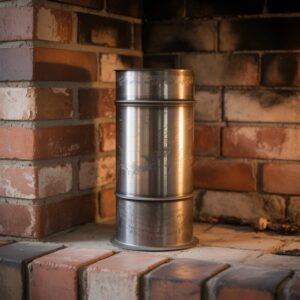Hemorrhoids excessive bleeding can be both frightening and distressing, often catching individuals off guard and presenting immediate health concerns. While this condition is rarely life-threatening, it may signal significant irritation or damage that requires prompt and informed medical attention. If neglected, hemorrhoids excessive bleeding can lead to complications such as anemia, infection, or chronic discomfort—ultimately impacting both personal well-being and daily productivity.
Thankfully, patients can take doable and medically advised actions to lessen bleeding, encourage healing, and stop recurrence. This article lists five essential steps to effectively control bleeding, lower inflammation, and promote long-term vascular health. People can prevent needless anxiety and recover control over their symptoms with clarity and confidence by being aware of the nature of the disease and acting appropriately early.
What Are Hemorrhoids?
Hemorrhoids are enlarged veins that resemble varicose veins and are seen in the anus and lower rectum. Internal hemorrhoids (developing inside the rectum) and external hemorrhoids (forming under the skin around the anus) are the two types of hemorrhoids. Although internal hemorrhoids usually don’t hurt, they might cause bleeding when you go to the bathroom.
Hemorrhoids on the outside can cause pain, edema, and irritation. Chronic constipation or diarrhea, extended sitting, low-fiber diets, pregnancy, obesity, and straining during bowel movements are all factors that might lead to hemorrhoids. For management and prevention to be successful, it is imperative to comprehend these causes.
Why Do Hemorrhoids Bleed Excessively?
Increased pressure and inflammation of the afflicted veins are frequently the cause of excessive hemorrhoid bleeding. This pressure can be increased by straining during bowel motions, passing firm stools, or sitting for extended periods of time. This can result in hemorrhoidal vein rupture and visible bleeding. Thrombosed hemorrhoids, in which a blood clot forms inside the hemorrhoid, can occasionally result in severe bleeding and discomfort.
It’s critical to distinguish between severe bleeding that soaks through toilet paper or persists unchecked and mild bleeding, which might manifest as tiny amounts of bright red blood on toilet paper. In order to rule out more serious illnesses including colorectal cancer or gastrointestinal bleeding, persistent or excessive bleeding requires immediate medical evaluation.
Immediate Steps to Manage Hemorrhoids Excessive Bleeding
1. Stay Calm and Assess the Situation
Although bleeding from hemorrhoids can be frightening, it’s crucial to maintain your composure. Determine the extent of the bleeding: light bleeding is normal and usually goes away on its own, but heavy or persistent bleeding could be a sign of a more serious problem. Keep an eye on the bleeding’s quantity and duration, and record any concomitant symptoms like weakness, lightheadedness, or fainting. To guarantee an accurate diagnosis and course of treatment, get medical help right away if the bleeding is severe or lasts more than a few days.
2. Apply Gentle Pressure and Use Cold Compress
Use sterile gauze or a clean, soft cloth to gently apply pressure to the affected region in order to stop the bleeding and minimize swelling. Then, for 15 to 20 minutes, apply a cloth-wrapped ice pack or cold compress to the affected area. By narrowing blood vessels, cold therapy can reduce bleeding and numb the area, temporarily relieving pain and discomfort. To avoid frostbite, repeat this procedure as many times as necessary during the day, being careful not to apply the cold source directly to the skin.
3. Maintain Proper Hygiene to Prevent Infection
To avoid infection and encourage recovery, the anal region must be kept clean. To prevent irritation, gently clean the area with wet toilet paper or unscented, alcohol-free wipes after each bowel movement. Dry toilet paper can be abrasive, so avoid using it. Sitting in a few inches of warm water for ten to fifteen minutes many times a day will help to relieve the area, lower inflammation, and encourage blood flow for the healing process. After taking a bath, make sure the region is completely dry to avoid skin problems caused by dampness.
4. Use Oral or Topical Treatments as Advised
Hemorrhoid symptoms can be effectively managed with over-the-counter medications. Topical ointments and lotions that contain witch hazel or hydrocortisone can relieve pain and irritation while reducing inflammation. Internal hemorrhoids may also benefit from suppositories. It has been demonstrated that oral drugs, such as supplements containing flavonoids, can prevent bleeding and strengthen blood vessel walls. It’s critical to adhere to the usage guidelines provided by these medications and seek medical advice if symptoms intensify or continue.
5. Consult a Doctor if Bleeding Persists
It is crucial to see a healthcare provider if hemorrhoid bleeding persists after using home remedies. Continued bleeding could be a sign of more serious hemorrhoids or other underlying illnesses that need to be treated by a doctor. A physician can do a comprehensive examination and suggest treatments including sclerotherapy, rubber band ligation, or, in more severe situations, surgical hemorrhoid excision. Early medical evaluation lowers the risk of problems and guarantees optimal treatment.
Preventing Future Episodes of Hemorrhoid Bleeding
Diet and Hydration
A diet rich in fiber is essential for avoiding hemorrhoids. Fiber lessens the effort during bowel motions by softening and bulking up feces. Include items like fruits, vegetables, whole grains, and legumes in your meals. Aim for 25–30 grams of fiber per day. Additionally, drink at least eight glasses of water each day to stay properly hydrated, which keeps stools soft and manageable. Bloating and gas are examples of digestive discomfort that can be avoided by gradually increasing fiber intake.
Bathroom Habits
The risk of hemorrhoid bleeding can be considerably decreased by using good restroom practices. Steer clear of straining during bowel motions since this puts more strain on the rectal veins. To avoid stool hardening, give in to the impulse to void as soon as possible. Reduce the amount of time you spend sitting on the toilet because extended sitting might make hemorrhoids worse. In order to modify the posture of the rectum and make bowel movements easier, think about elevating your feet on a footstool when using the restroom.
Regular Physical Activity
Regular exercise encourages a healthy digestive system and guards against constipation, which is a common cause of hemorrhoids. On most days of the week, try to get in at least 30 minutes of moderate exercise, such swimming, cycling, or walking. Exercise increases blood circulation and promotes bowel movement, which lowers the risk of hemorrhoids. The risk of hemorrhoids can also be reduced by exercising to maintain a healthy weight, which relieves strain on the pelvic veins.
Key Takeaway
Excessive bleeding from hemorrhoids can interfere with daily activities, reduce productivity, and create severe discomfort, particularly for adults who lead hectic lives or spend a lot of time sitting down. Promptly addressing this condition with medical consultation, accessible home care, and good cleanliness guarantees a quicker recovery, fewer complications, and less downtime. Simple, affordable strategies such as cold compresses, fiber-rich meals, and non-invasive therapies provide a scalable way to control symptoms before they worsen.
This subject gives readers useful, adaptable answers that enable them to take charge of their health without needless worry or expenditure. People who take early action not only prevent more invasive operations but also enhance their long-term comfort and general well-being. An intelligent, proactive step toward living—and working—without painful disruptions is to address hemorrhoids’ excessive bleeding.
- Do not Panic: Top 5 Things to Do with Hemorrhoids Excessive Bleeding
- Hemorrhoids excessive bleeding can be both frightening and distressing, often catching individuals off guard and presenting immediate health concerns.
- hemorrhoids excessive bleeding
Related posts:
 Affordable Online Healthcare: Save More with a CallonDoc Promo Code
Affordable Online Healthcare: Save More with a CallonDoc Promo Code
 Blue Grass Guppy: A Mesmerizing Addition to Your Aquarium Life
Blue Grass Guppy: A Mesmerizing Addition to Your Aquarium Life
 Famotidine Pepcid for Cats: What Pet Owners Need to Know for Their Feline Friend
Famotidine Pepcid for Cats: What Pet Owners Need to Know for Their Feline Friend
 The Benefits of Home-Based ABA Therapy for Children with Autism
The Benefits of Home-Based ABA Therapy for Children with Autism
 How to Know If You Need to See a Gastro Doctor for Stomach Pain
How to Know If You Need to See a Gastro Doctor for Stomach Pain
 How Massage Therapy Can Improve Your Health: A Guide for Queens Residents
How Massage Therapy Can Improve Your Health: A Guide for Queens Residents
 A Complete Guide on the Pricing of the Composite Bonding in London
A Complete Guide on the Pricing of the Composite Bonding in London
 Your brief and useful guide to removable orthodontic appliances
Your brief and useful guide to removable orthodontic appliances







